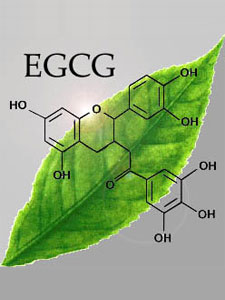Training in Tea



You can pursue pretty much anything in college nowadays. Even tea and tea appreciation is a viable field of study in higher institutions. Colleges around the globe have started offering courses and even degrees in the art, cultivation, and marketing of tea.
India leads the pack with the most programs offered; not surprising considering that India is the world's largest tea producer.
Shahjalal University of Science and Technology in Bangladesh has an entire department dedicated to tea. Established in 2004, the Department of Food and Tea Technology brews up courses in tea husbandry and production, tea processing, and tea economics and marketing. Students also can take courses in soil science, manufacturing and packaging, pest management, genetics and breeding, and disease management.
Tea Management is another burgeoning area of expertise in India, with several major universities offering courses of study in this field. These schools include Assam Darjeeling Tea Research Center, Assam Agricultural University, Indian Institute of Plantation Management, and Assam University. These courses prepare students for a variety of different positions in the ever-growing tea industry. Tea production, finance, processing, marketing sales and tea tasting are just some of the areas of expertise covered by these courses.
But it not just the production and marketing of tea that has attracted the attention of institutions for higher learning. Much like wine, tea can be perfectly paired with a sumptuous meal. As a result, colleges have started to offer courses for certification to be a tea sommelier.
Canada's George Brown College, in 2009, graduated Canada's first class of certified Tea Sommeliers. Designed by faculty members of the school's Hospitality and Culinary Arts program, in conjunction with the Tea Association of Canada, the two-year program is steeped in the tradition of wine sommelier training. While 300 students took one or more of the classes in the program, 12 students finished the entire course to receive Tea Sommelier certification.
According to Bill Kamula, chef instructor at George Brown College, "The course not only provides an overview of the basic components of tea, its growth and manufacturing, it deals with flavour profiles and teaches evaluative cupping procedures. The course then moves into mixology, food and tea pairings." Kamula added that the students who graduate with a full certificate have opportunities for careers in retail, restaurant and hotels, tea tasting and buying.
In the United States as well, colleges and universities are hearing the siren call of tea. The history of tea and the appreciation of tea, are topics that are being infused into college curriculums.
Bowdoin College, in Massachusetts, offers a seminar course entitled "The History of Tea in East Asia," taught by Dr. Lawrence L. Zhang. Students learn about the wide range of factors throughout history that have affected tea consumption across the globe, from politics to trade routes to ever-evolving production methods. The culture of tea also is examined, through discussions about tea ceremonies, teacup designs, and teahouses. Dr. Zhang demonstrates various brewing methods, and the students have the opportunity to taste different teas.
Researching the potential health benefits of green tea is also a fruitful endeavor for certain institutions. At the University of Massachusetts Lowell, in their Center for Advanced Materials, the Green Tea Chemotherapeutic Research Program is being conducted on the possible anti-cancer capabilities of green tea, and its possible use in cancer therapies. This research program is studying the chemistry of green tea in an effort to find ways to apply it to cancer treatments, as an alternative to the highly toxic chemicals currently used in cancer drugs.
According to the research program's website, "Green tea flavonoids, used here as starting materials, are readily available / renewable and are polymerized using 'green' methodologies to yield highly active and stable products that are biocompatible and can be tolerated by humans to much higher dose levels as compared to commercial drugs." The polymers that have been developed have shown signs of inhibiting the growth of a wide range of cancer cells including human breast, head and neck squamous carcinomas and colorectal adenocarcinomas.
While it is not an actual course of study, the Green Tea Program is a research project being conducted by a major university to determine the medical applications of green tea.
From India to Canada to the United States and beyond, the study and research of tea and its applications continues to attract the attention of students and scholars alike.
